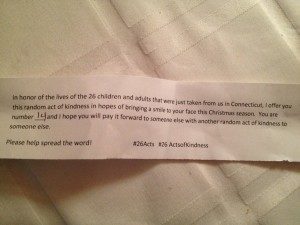 A mother and her son, probably about 8 years old, came over to us in the parking lot of the mall the other day.
A mother and her son, probably about 8 years old, came over to us in the parking lot of the mall the other day.
“Excuse me, I’d like to give you this.”
“What’s this for, Honey?”
“I’m giving out 26 boxes of candy as a Random Act of Kindness in honor of each of the people who died in the Sandy Hook shooting. You’re number 14…Happy Holidays…”
It was a box with three chocolates in it. The small strip of paper on the box read; “In honor of the lives of the 26 children and adults that were just taken from us in Connecticut, I offer you this Random Act of Kindness in hopes of bringing a smile to your face this Christmas Season. You are number 14 and I hope you will pay it forward to someone else with another Random Act of Kindness to someone else. Please help spread the word! #26Acts #26ActsofKindness
After last Friday’s tragic shooting in Connecticut and many tough conversations with our children, many are looking for ways to help or remember those lost on that fateful day. There are many ways to honor those who were lost in a tragedy like Sandy Hook. While traditional ways to help from contributing money to legitimate foundations andfunds or volunteering mental health services [call (800) 203-1234] are great for adults to feel a sense of contribution, children may also like to do something. It gives them something concrete and age-appropriate to do which can be both a relief and a sense of pride during these confusing and sad times.
Here are some ways our children can honor those lost in the Sandy Hook shooting:
(1) Do an act of kindness for 26 people: In honor of each victim, your child can give out 26 items or do 26 acts of kindness that are meaningful to them. Perhaps your children use some of their allowance to buy small boxes of candy like boy in the mall parking lot did. Or, perhaps your children will get crafty and make bracelets, pins, stickers, or pictures that they take time to create. Maybe your child will lend his or her services to help others in their own special way– playing the piano for a sad neighbor, collecting cans for a charity, bringing flowers to the elderly. Whatever feels meaningful to them can help them feel like they are doing something in the wake of this tragedy.
(2) Make a snowflake: Members of Connecticut’s Parent Teacher Student Association are asking for  homemade snowflakes! Let the children get creative! The PTSA will use the snowflakes to decorate the school so that the children come back to a beautiful winter wonderland. The children will be moving to a new school in the new year so they are asking for the snowflakes as soon as possible. Anyone wishing to make snowflakes can send them to: Connecticut PTSA– 60 Connolly Parkway, Building 12, Suite 103–Hamden, CT 06514.
homemade snowflakes! Let the children get creative! The PTSA will use the snowflakes to decorate the school so that the children come back to a beautiful winter wonderland. The children will be moving to a new school in the new year so they are asking for the snowflakes as soon as possible. Anyone wishing to make snowflakes can send them to: Connecticut PTSA– 60 Connolly Parkway, Building 12, Suite 103–Hamden, CT 06514.
(3) Create a condolence card: If your children love to draw, cut and paint, perhaps they’d like to send a homemade card to those grieving in Sandy Hook. The US Postal Service has added a PO Box for those who wish to send letters of condolence to the residents of Newtown. Please address mail to: Message of Condolence, PO Box 3700, Newtown, CT 06470.
(4) Quilt or knit a blanket: Project Linus is a nonprofit that brings comfort to children in crisis. If your child loves to quilt or knit, this can be a rewarding way to give comfort to those in need. Find out how you can get involved here.
(5) Partial out allowance: As there are so many foundations set up—some general to help all the families and some specific to help a particular family affected by the tragedy, your children can choose where they want their money to go. Teach your children to partial out a portion of their allowance to the charity or foundation of their choice. Do they identify with one particular child? Some of the children were known for their beaming personalities, some for their interests and some for their talents. Allow your child to pick so that s/he feels connected to the gift. For example, a child named Noah might feel an affinity to Noah Pozner and want to donate to the Noah’s Ark of Hope Fund . in his honor. A child who loves animals might decide to donate money to a charity to help animals in animal-lover Catherine Hubbard’s name. There are many options—and so many people who can be helped with your family’s generosity.
Whatever small way your child can help will no doubt be appreciated by the recipients. But it will also give something back to your child who will learn that children do have the power to give, the power to love and the power to heal.


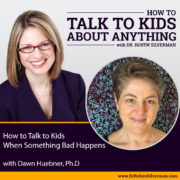
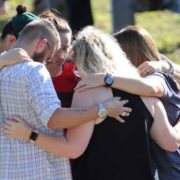
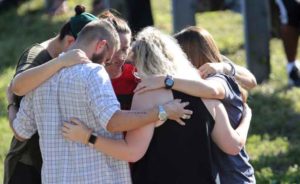 attend, how can we explain it to children? How do we explain it to ourselves?
attend, how can we explain it to children? How do we explain it to ourselves?
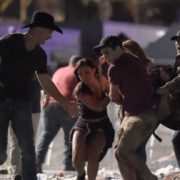
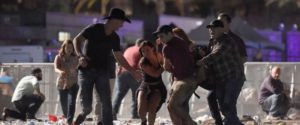
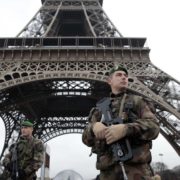
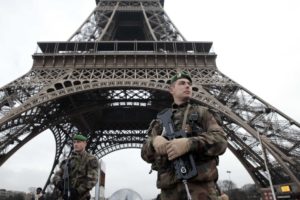 How to Talk to Kids about the Paris Attacks and Other Tragic Events
How to Talk to Kids about the Paris Attacks and Other Tragic Events
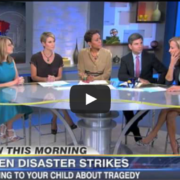
 A mother and her son, probably about 8 years old, came over to us in the parking lot of the mall the other day.
A mother and her son, probably about 8 years old, came over to us in the parking lot of the mall the other day.
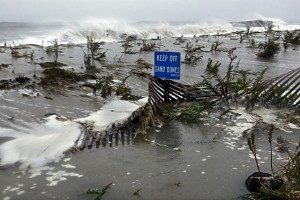 My hope is that we all open our hearts and our homes to those who are still in need. Do what you can even if it’s small– donate, lend out generators or extension cords, invite people over for dinner and to stay the night. That’s been our plan of action as our power has been restored (thankfully) and we only had 2 fallen trees and some fence damage. We consider ourselves very lucky– and hope for the safety and quick recovery of those still dealing with the aftermath of Hurricane Sandy.
My hope is that we all open our hearts and our homes to those who are still in need. Do what you can even if it’s small– donate, lend out generators or extension cords, invite people over for dinner and to stay the night. That’s been our plan of action as our power has been restored (thankfully) and we only had 2 fallen trees and some fence damage. We consider ourselves very lucky– and hope for the safety and quick recovery of those still dealing with the aftermath of Hurricane Sandy.